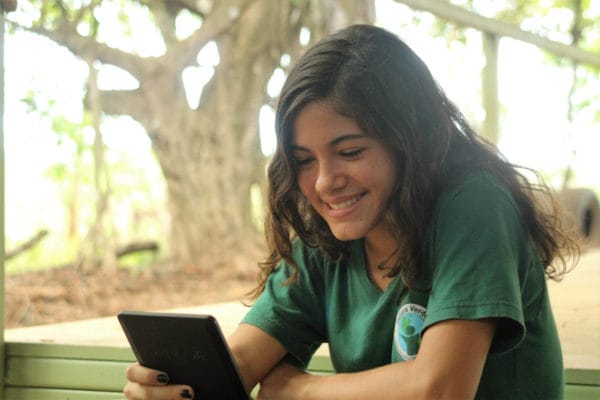Technology benefits our live in many ways because it makes communication easier and more efficient. It’s also important, however, to be aware of the dangers of technology use, especially when it comes to our children. With the ability to connect with anyone in the world, at any time in an instant through social media; we must take certain precautions to protect ourselves and our kids from those individuals that may not have the best of intentions. Because we have had incidents in our own community regarding online sexual predators, the need to have the conversation with each other and our children is urgent. Have you talked with your kids about internet safety? A simple conversation can go a long way in raising their awareness of the dangers and, give them some important information regarding their behavior online so that they can be empowered to make safe choices.
Here are a few key ideas for a meaningful conversation:
What happens on the internet, stays on the internet!
This is an important reminder for all of us. Whatever we post on the internet is always available and can be found quite easily. We sometimes forget that we are always leaving a digital trail with everything we say and do online. A good question to always ask ourselves before we decide to post any content is this: “Would I want my grandma or grandpa, or little brother or sister to see this?” If the answer is “no,” don’t post it! This could include a comment, picture, or video. By creating this simple filter, we can prevent a lot of potential stress in the future for ourselves and/or the people we know.
There is value in privacy.
Keeping private things private is often a value that is lost in the digital age. We must remember, though, that what we do represents ourselves and our families. With this in mind, we may not need to share details of our lives with strangers. An easy way to do this is to change our social media settings to “Private.” By only allowing people we know to access us online, we create an excellent safeguard that can prevent others from contacting us and monitoring us unwantedly. Let us please encourage our children and teenagers to only engage with people they know on the internet. By sharing these ideas and monitoring our kids’ behavior online, we can potentially safeguard against online predators.
What does it mean to be a friend?
By reminding our children and teens to be careful what they post and to maintain their privacy online, we are helping them to be safe. Along these lines, we can take the conversation a step further and remind them that they don’t have to accept every “Friend Request” that comes their way. My simple rule is this, “If I don’t know you or you are not a friend of a friend, I do not engage with you on social media.” Obviously, there might be a few exceptions to this rule but, for the most part, this is a good standard to live by and the benefits outweigh the risks. This can be taken a step further by taking inventory of our “Friend List” and purging it of those that we don’t know. This easy step can add another filter for online safety.
Help and support are a valuable lifeline.
By giving our kids a safe and open line of communication, we can create an environment of trust and support. Many times, victims of online predators feel isolated, scared, and alone. Often, if they would just seek help, the situation would not intensify. We need to let our children and teens understand that they can come to us when they need help without the fear of judgement. By feeling safe to reach out to a parent, teacher, or counselor before the problem becomes too unmanageable; they can get the help that they need and prevent future problems.
With these key points, we can engage in a meaningful conversation with our children and teens to create a safe online experience. With a few safeguards and the understanding that, “it CAN happen to me,” we can prevent dangerous situations from escalating. Please reach out to Futuro Verde if we can help or provide clarity in guiding the conversation.


